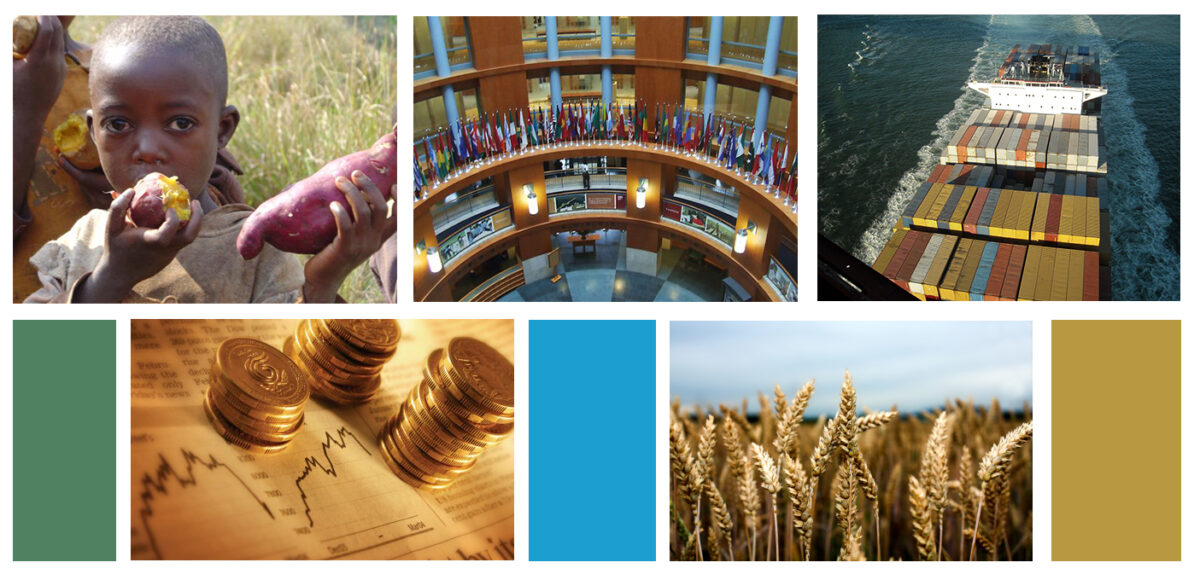- Conference Dates: 15-16 June 2017
- Abstract submission by authors: February 15, 2017
- Notification of acceptance to authors: March 17, 2017
- Authors’ early registration: April 30, 2017
- Full paper/poster submission: May 26, 2017
- Authors’ registration deadline: May 31 2017
Two key factors have recently contributed to place migration issues at the centre of the economic and political agenda. Firstly, the weaker economic prospects and the cuts in public spending due to the recession have increasingly contributed to make immigrants be perceived as competitors in the labour market and in the welfare state, rather than as a resource. Secondly, the refugee crisis, with the number of migrants seeking for asylum in Europe reaching a level not experienced since the mid-1990s, creates alarming tensions and un-coordinated reactions by the EU countries, revealing the fragility of EU institutions. What are the implications of this massive flow of migrants for the agricultural and food sector and, more in general, for rural areas both in the origin and destination countries? In the last decades, agriculture and rural areas have represented the main source of job opportunities for international migrants. Evidence of the key role played by migrant workers in keeping the sector competitive and resilient to the changes is solid. In Italy, for example, more than 25% of the agricultural labour force and nearly 70% of the seasonal labour force are represented by migrants. Similar patterns can be detected in other EU countries, such as Spain, France and Greece, as well as in the US. Yet, although migrant labour force has become a structural element of the agricultural sector in several developed countries, it has also occurred at growing and unsustainable social costs. The fact that agriculture often represents the first occupational opportunity for migrants has brought about at the same time problems of immigrants’ exploitation, illegal hiring and other social costs in many rural areas. In Italy for example, more than 30% of the total non-EU migrant workers are irregular, with a salary significantly below the average, extremely limited worker rights and without any kind of social protection. The interaction between migration and poverty – both at origin and destination – is still among the least studied topics in agricultural economics. This is surprising if one considers that migrants are coming mainly from rural areas where poverty is highly concentrated. Moreover, how the migration process affects the socio-economic contexts in the countries of origin is important not only from a social welfare point of view. The increasing market integration and the role of remittance may create externalities and economic growth in the rural areas (for example, by affecting food production, consumption and the rural demand for manufactured goods); as a consequence, the derived economic welfare is expected to influence future migration processes. Similarly, in destination countries, immigrants are contributing to change consumption patterns as well as food habits, by opening shops, restaurants and trade activities.
Economic research on migration has gone well beyond the analysis of the impact of migrants on natives’ wages and employment. Economists have started to analyse the interaction between immigrants and natives, their degree of substitution and/or complementarities, and how native workers, firms and local economies react and adjust to labour supply shocks. Furthermore, there is a wide literature on the effects of migration on education, health and crime, as well as on the political effects of immigrants at origin and destination. The relevance of these topics motivates the need to provide high quality studies also incorporating current knowledge from the economic literature to analyse the economics and politics of migration in rural areas. In this perspective, the sixth AIEAA Conference aims at providing a scientific contribution to these issues by expanding the knowledge base on the fundamental effects of migration, and by promoting a critical debate on the underlying theoretical and methodological issues and policy implications. Specific issues to be addressed include:
- The effect of migrations on the agricultural labour market;
- The contribution of foreign workers to agriculture productivity growth;
- The effect of migration in rural areas;
- Farms’ adjustment to local labour supply shocks;
- Migration and poverty condition in the countries of origin;
- Migration and the changing patterns of food consumption;
- Migration, climate change and natural disasters;
- The trade effect of international migrations;
- The political economy of migration policy;
- The political outcomes of international migrations;
- Migration and crime in rural areas.
- Migration, education and health
AIEAA welcomes the submission of contributions on the topics above. However, the submission of contributions on other agricultural and applied economics topics is encouraged as well
Submissions
Contribution proposals should be submitted in English through the conference website at www.aieaa.org. There are three types of contributions: contributed papers, organized sessions, and posters. Contributed papers Participants intending to present a paper are requested to submit an extended abstract (minimum 1000 words; maximum 1500 words) before February 15, 2017.
More information

